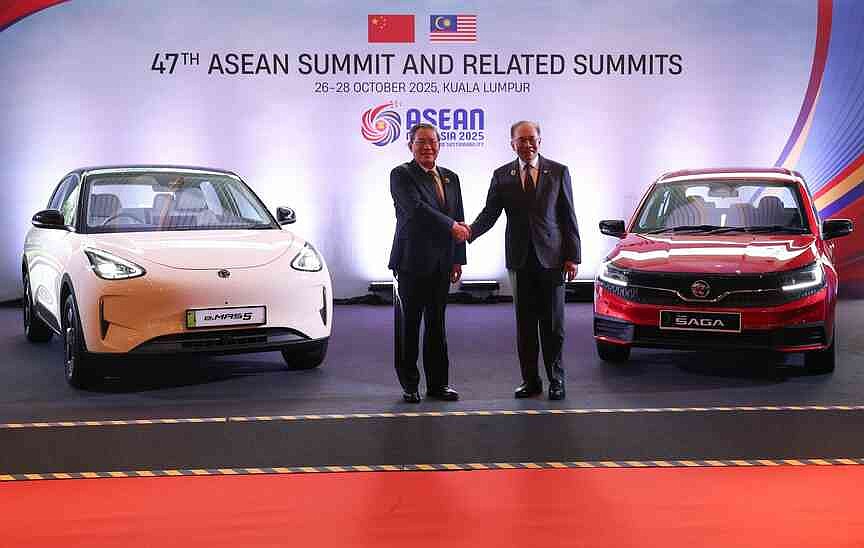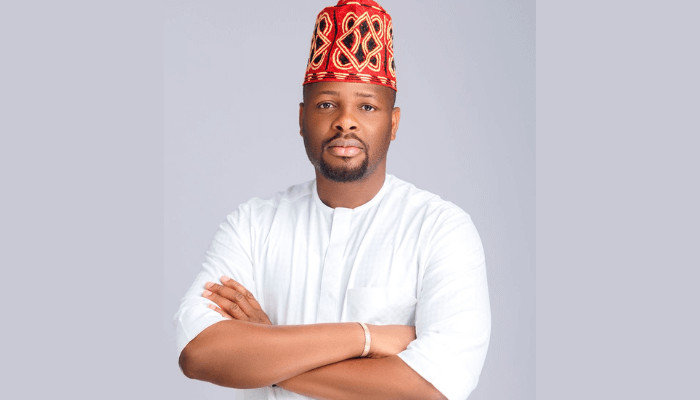Copyright Arkansas Online

President Donald Trump's administration is slated to sign a deal with South Korea aimed at bolstering cooperation in artificial intelligence, quantum computing and data speeds, according to a U.S. official -- part of a bid to maintain a competitive edge with China in an expanding race for tech supremacy. The agreement is set to be signed on Wednesday by Michael Kratsios, director of the White House Office of Science and Technology Policy, according to the official, who discussed plans not yet public on condition of anonymity. Under the pact, the two countries will work to strengthen export controls for AI and to reduce regulatory burdens for tech companies in a bid to make it easier to store and use data in different geographic locations, according to the official. The agreement also looks to improve biotechnology and pharmaceutical supply chains, bolster research security, protect quantum technology advances and promote partnerships involving space and 6G data speed telecom technology. The official did not identify which companies might be involved in projects under the deal. The agreement follows similar pacts on tech cooperation signed with Japan on Tuesday and last month with the United Kingdom. "The Trump Administration is redefining American technological leadership by driving bilateral collaborative partnerships with allies like Korea," Kratsios said in a statement. "Each Technology Prosperity Deal offers great opportunities to accelerate scientific discovery and lead the world into a new era of innovation driven by the U.S. and our partners." The signing is set to take place with Trump in Asia on a three-nation tour, with stops in Malaysia, Japan and South Korea. The trip will culminate with Trump scheduled to meet Chinese President Xi Jinping on the sidelines of the Asia-Pacific Economic Cooperation summit on Thursday as they look to finalize a sweeping arrangement to address trade flashpoints between the world's largest economies. Ahead of that meeting, Trump has sought to ramp up economic pressure on China, signing agreements to expand markets for U.S. goods and securing deals over critical minerals to reduce reliance on Beijing for the rare earths critical to many industrial sectors. Trump has made promoting the nascent fields of artificial intelligence and quantum computing a key focus of his administration, looking to counter China, where officials have poured state resources into those areas. U.S. officials have identified quantum computing as a national security priority and the administration has discussed financial support for some companies. On artificial intelligence, Trump has sought to boost development by easing regulations and permitting for AI infrastructure and putting in place curbs to restrict China's access to advanced semiconductors. The agreement to ramp up cooperation with South Korea on technology, though, comes with Washington and Seoul still at an impasse over a trade deal to cap U.S. tariffs on Korean exports at 15%. A key element of that pact is a $350 billion investment pledge from South Korea. South Korea has cast the fund as a mix of direct investments, loans and guarantees, but Trump has said it should be an upfront payment, leading to protracted negotiations. Securing an agreement and unlocking the lower 15% tariff rate is critical to Seoul and its car and auto part exports. South Korean automakers currently face a 25% U.S. tariff while Japanese counterparts have a 15% levy after Tokyo reached its own agreement with the U.S. TRADE PACT IN ASIA China signed an expanded version of a free trade agreement Tuesday with the Association of Southeast Asian Nations, with Prime Minister Li Qiang pitching expanded economic ties with China as an alternative to the protectionist policies of Trump. Li told an ASEAN-China summit meeting after the signing that closer cooperation could help overcome global economic uncertainties. He said "pursuing confrontation instead of solidarity brings no benefit" in the face of economic coercion and bullying, in a swipe at the U.S. "Unity is strength," he said, citing remarks by Xi made during a Southeast Asia visit earlier this year. His remarks were met with skepticism by Philippine President Ferdinand Marcos Jr., whose country has clashed with China over competing claims in the South China Sea, as have other ASEAN nations. Marcos welcomed the expanded trade pact, but stressed that "this cooperation cannot exist alongside coercion." The signing of the ASEAN-China Free Trade Area 3.0 came on the final day of the annual ASEAN summit and related meetings and was witnessed by Li and Malaysian Prime Minister Anwar Ibrahim, who is serving as ASEAN chair this year. It's the third revision of the long-standing agreement, which was first signed in 2002 and came into force in 2010. The free trade area covers a combined market of more than 2 billion people and lowers tariffs on goods and boosting flows of services and investment. Two-way trade has surged from $235.5 billion in 2010 to nearly $1 trillion last year. ASEAN and China are each other's top trading partners. Li stressed "mutual reliance" between China and ASEAN members Brunei, Cambodia, East Timor, Indonesia, Laos, Malaysia, Myanmar, the Philippines, Singapore, Thailand and Vietnam, calling them "good neighbors and good brothers that are close in geography, culture and sentiment." "Unilateralism and protectionism have seriously impacted the global economic and trade order, while external forces are increasing their interference in the region -- many countries have been unreasonably subjected to high tariffs," he said. "By relying on each other and coordinating our actions, we can safeguard our legitimate rights and interests." Southeast Asian political analyst Bridget Welsh said the upgraded pact would benefit both sides, especially in the areas of supply chains and sustainability. "It also speaks to a global reality that non-U.S. countries are coming together to strengthen trade relationships for their prosperity as a recoupling with the U.S. is ongoing," she said, The prospect of a deepening trade conflict between China and the U.S. has risked weakening economic growth worldwide. Trump at the ASEAN summit on Sunday announced new economic details with Cambodia, Malaysia, Thailand and Vietnam, though all countries are still subject to new tariffs he has brought in. Anwar stressed at the ASEAN meeting with China that the bloc seeks friendly relations with all countries. "The day before we were with President Donald Trump of the United States of America, and today we are back with China," he said. "And that reflects ASEAN centrality. ... This is what we consider steady engagement that fosters trust that enables us to work through challenges together." Officials said the ASEAN-China free trade agreement is expected to broaden integration across the region by covering new areas such as digital trade, the green economy, sustainability and support for small and medium-sized enterprises, which make up the majority of ASEAN businesses. The agreement is designed to make trade benefits more accessible, improve market entry for smaller players, streamline nontariff procedures and lower regulatory barriers. Information for this article was contributed by Hadriana Lowenkron of Bloomberg (WPNS) and by Eileen Ng and David Rising of The Associated Press.



